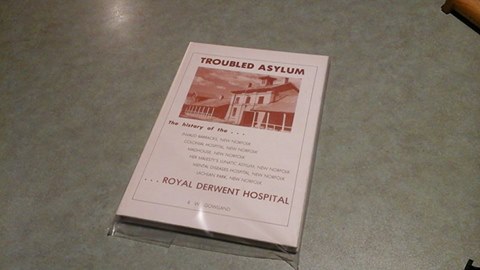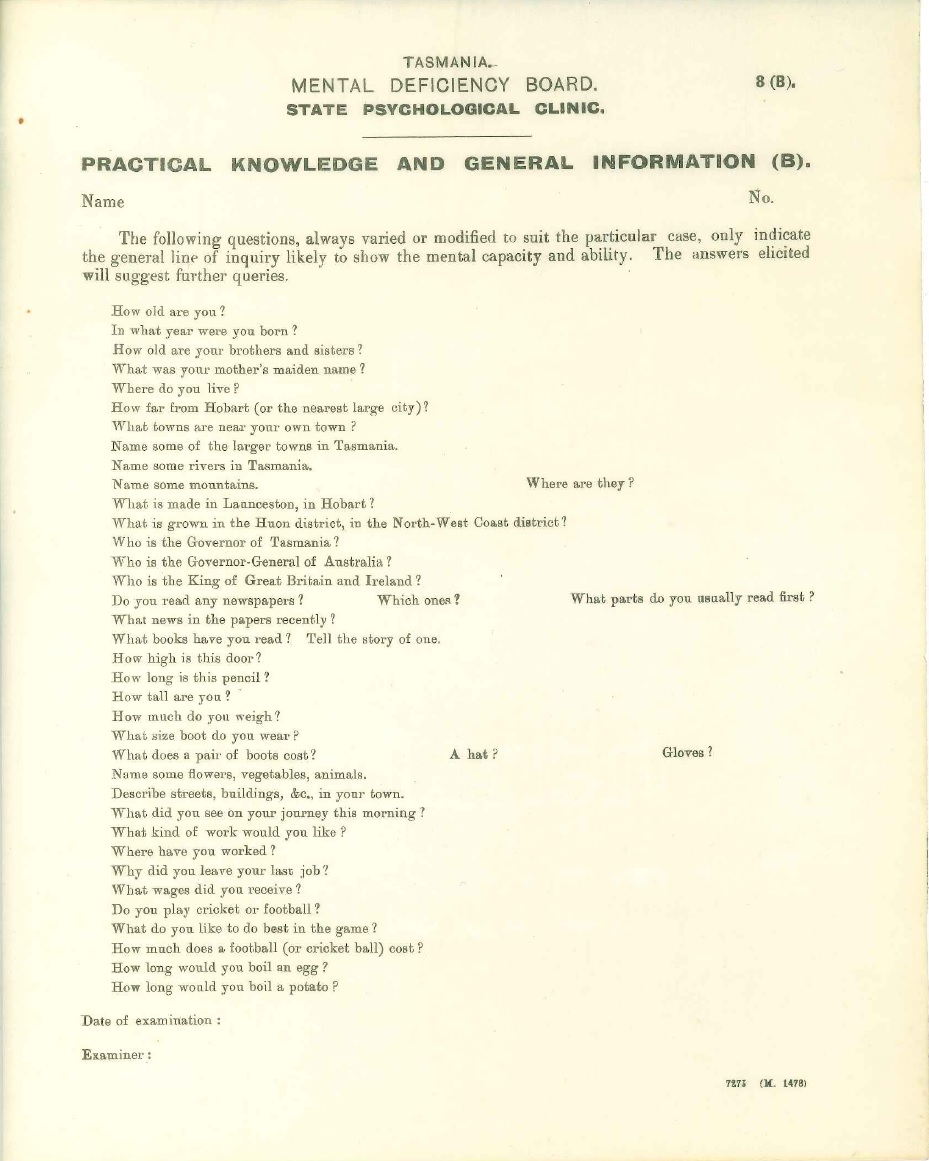
A couple of months ago I received a beautiful copy of Troubled Asylum to be sold on behalf of a friend. I receive, what I would consider the best copy I have yet seen and inside found a four page document. The document is original and is clearly marked “Royal Derwent Hospital, New Norfolk, Tasmania” and is titled
“Historical Notes. Present Day Statistics, Objectives and Functions”.
It was written by the then Psychiatrist Superintendent
Dr R. V. Parton, dated, August 1978.
A copy of this four page document is stored in the Archives of Tasmania LINK, however there are differences of the creation date. It is believed that the copy of Trouble Asylum was given to the then local Anglican Minister of New Norfolk as a thank you for his ongoing support to the Author, Ralph W Gowlland. It is believed that the four page document was owned and used by the author, Ralph Gowlland for his book.
Historical Notes, Present Day Statistics, Objectives and Functions
Dr Parton was the Psychiatrist Superintendent from 1976 (acting) 1977 and wrote the Forward to a Troubled Asylum a book containing the history of Willow Court from 1827 til 1981 when the book was first published. The soft cover second edition which contains extra information was published in 1996.
 On another Troubled Asylum note, the last copy sold from “Just Tassie Books” in Campbell Town Tasmania was sold to David Walsh, owner of the Mona Museum and was reported to have been purchase for the Museum’s Library.
On another Troubled Asylum note, the last copy sold from “Just Tassie Books” in Campbell Town Tasmania was sold to David Walsh, owner of the Mona Museum and was reported to have been purchase for the Museum’s Library.
It is great to know that there is a copy available for the public to read besides those at the Tasmanian Library.
